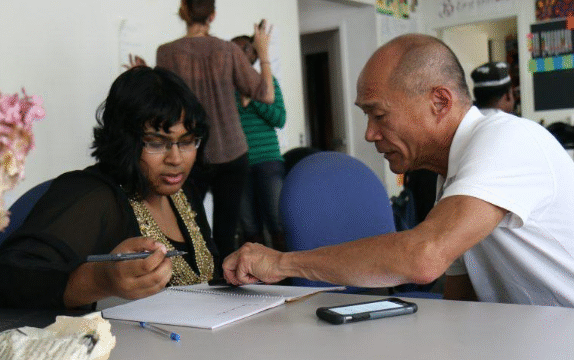Education has evolved dramatically in the past decade.
With technology shaping the way people study and train,
learners today have more options than ever. From online
platforms to short-term courses, there is no shortage of opportunities to expand one’s knowledge and skills. Yet, amid all these possibilities, one question often arises: which credentials truly matter? That is where government-recognized learning certificates come into play. These certificates provide learners with a strong foundation of trust and credibility because they are officially acknowledged by a governing body. Understanding their value and how they function can help learners make more confident decisions about their educational journey.
When people talk about certificates, they may think of pieces of paper given at the end of a course. While that is true in a general sense, the weight a certificate carries depends heavily on who issues it. A certificate backed by a government agency or a recognized authority often stands out more than one issued by an unknown provider. This recognition is not about decoration or formality; it is about setting quality standards and ensuring that learning outcomes are consistent and reliable. A government-recognized certificate often follows rigorous evaluation processes that guarantee learners have genuinely achieved the required skills or knowledge.
Employers across many sectors pay special attention to government-recognized certificates. Hiring managers know that these qualifications represent a level of quality assurance. For example, in industries such as healthcare, education, or engineering, certifications often need to meet strict legal and professional guidelines. A nurse with a certificate issued by an official medical training authority will be trusted more readily than one with an unverified credential. Similarly, in the field of information technology, certificates endorsed by a ministry of education or labor can signal that the holder has been trained according to national or international standards. This level of trust can make a real difference when seeking a job or advancing in a career.
For learners, one of the most attractive aspects of government-recognized certificates is mobility. Because these certificates are often tied to national standards, they can be accepted across regions or even internationally. Imagine someone completing a vocational training course in their home country that is aligned with international frameworks. This recognition allows them to apply for work abroad with confidence that their skills will be acknowledged. Such flexibility is especially valuable in a world where career paths increasingly cross borders.
Another advantage is the role these certificates play in lifelong learning. Many professionals already working in their fields return to study to keep up with new developments. A government-recognized certificate gives them a way to prove they have updated their knowledge. For instance, a teacher might take an additional course in digital education strategies. By completing a program recognized by the ministry of education, the teacher can demonstrate their readiness to adapt to modern classroom needs. This not only benefits the teacher’s career but also enhances the learning experience of students.
Cost is also an important factor. Government-supported or recognized programs often come with financial aid, scholarships, or subsidized tuition fees. This makes them more accessible to a wider population, allowing people from different backgrounds to pursue learning opportunities. For many families, this affordability can be the deciding factor between whether or not education is within reach. Unlike private certificates that may be expensive without assurance of value, government-recognized certificates provide a balance of quality and accessibility.
Of course, the process of obtaining one of these certificates may be more demanding. Learners often must complete official examinations, practical training sessions, or assessments that meet strict guidelines. While this may feel challenging at times, it also ensures that the certificate is not simply symbolic. It carries real evidence of effort and achievement. For employers, this rigor provides reassurance that candidates are not just claiming skills but have proven them through standardized evaluation.
It is also important to note that government recognition does not limit itself to traditional academic subjects. Many vocational and technical skills programs also fall under this umbrella. Fields like culinary arts, automotive repair, hospitality, and construction often have government-recognized certification systems. These programs equip learners with practical abilities while giving employers confidence that workers have met established competency benchmarks. In fact, in many countries, certain professions legally require government-recognized certificates to ensure safety and quality standards are upheld.
As technology continues to shape education, governments are also recognizing online learning platforms. Some online courses now go through official review processes, allowing their certificates to be validated at the national level. This blending of traditional regulation with modern digital learning offers the best of both worlds: flexibility and credibility. Learners can study from home while still receiving a certificate that carries weight in the job market. This trend is expected to grow as more people embrace remote education and governments adapt to new learning models.
For those considering whether to pursue a government-recognized certificate, the decision often comes down to long-term value. While non-recognized certificates may provide quick knowledge, they might not hold up when presented in a professional setting. On the other hand, a recognized certificate represents not just skills learned, but also the assurance that those skills meet established standards. In competitive environments where many candidates may apply for the same role, having a certificate with official recognition can provide the edge needed to stand out.
These certificates also play an important role in bridging education with national workforce goals. Governments often design certification frameworks in line with industry demands. For example, if a country needs more skilled workers in renewable energy, it may promote training programs in solar or wind technologies and ensure their certificates are recognized officially. This alignment benefits everyone involved: learners gain relevant skills, employers find qualified workers, and nations build stronger economies.
Looking ahead, the value of government-recognized learning certificates is only likely to increase. As industries evolve and job requirements shift, people will need reliable ways to prove they are keeping up. Certificates recognized by governments provide exactly that assurance. They are a bridge between personal growth and societal trust, helping learners move forward while giving employers confidence in their choices.
In conclusion, government-recognized learning certificates offer a powerful combination of credibility, accessibility, and long-term value. They reassure employers, open doors for learners, and ensure that education aligns with professional and national standards. For anyone seeking to invest in their future, choosing a path that leads to one of these certificates is a decision filled with opportunity. Education may be evolving, but the importance of trust and recognition remains constant. By pursuing certificates that carry official backing, learners not only enrich their knowledge but also secure a stronger and more confident place in the professional world.






